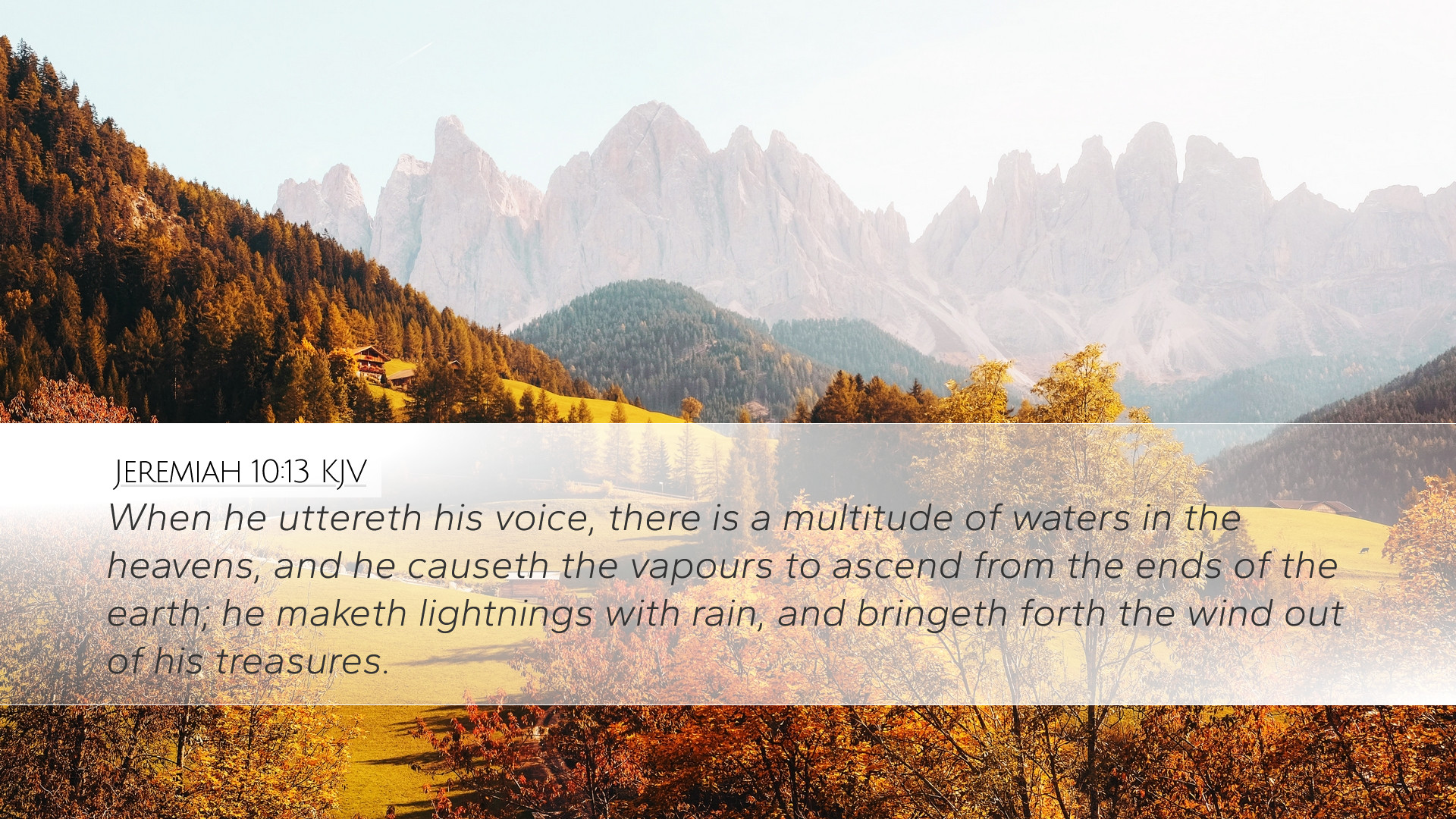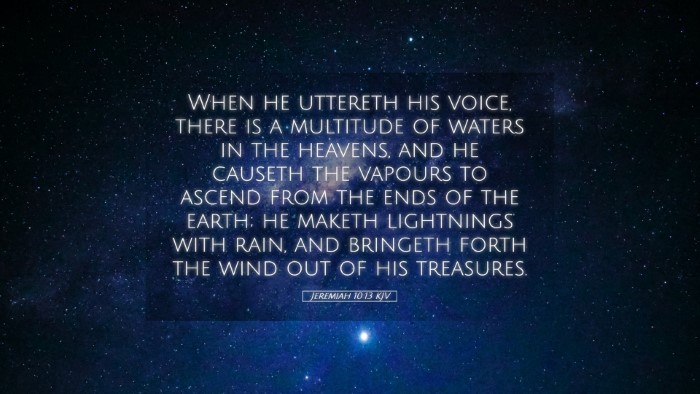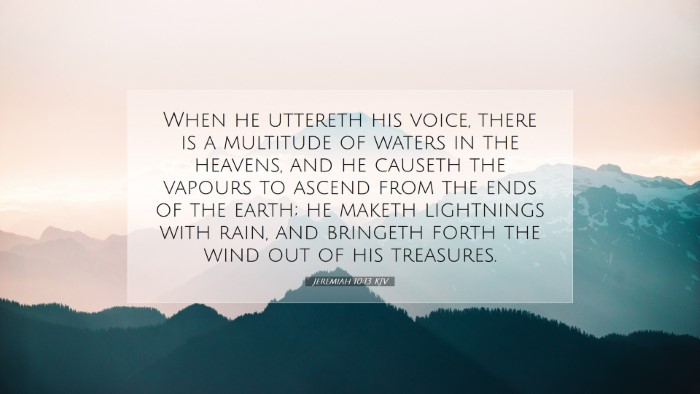Commentary on Jeremiah 10:13
Verse Summary: Jeremiah 10:13 states, "When He utters His voice, there is a multitude of waters in the heavens; and He causes the vapors to ascend from the ends of the earth; He makes lightning for the rain, and brings forth the wind out of His treasures." This verse beautifully depicts God’s sovereignty over nature and His omnipotent control over creation.
Exegetical Insights
This verse emphasizes God’s power and authority in orchestrating the natural world. It serves as a contrast to the idolatry prevalent in the society of Jeremiah’s time, where false gods were thought to have control over nature. The imagery used demonstrates that only the true God has command over the elements, rendering idols powerless.
Divine Sovereignty
Matthew Henry asserts that this passage conveys God's ultimate control over all forces of nature. He remarks that God's voice commands the waters—symbolizing when the heavens pour out rain—and emphasizes that it is God alone who can direct these processes. Henry elucidates that the multitude of waters signifies both blessings and judgment that can arise from natural phenomena.
God's Creative Power
Albert Barnes highlights the verses' elucidation of God's creative power. He notes that the communication of God’s will results in natural events, such as storms and rainfall. Barnes interprets the vapors as the prelude to rain, showcasing God's provision for the earth and its inhabitants. He comments on the significance of natural events as expressions of God's grandeur.
Control Over Nature
Adam Clarke proclaims that this verse confirms God's dominion over the physical world. Clarke elaborates that the 'lightning for the rain' phrase illustrates how God skillfully orchestrates weather patterns. He emphasizes that the 'wind out of His treasures' further portrays the idea that God's resources are boundless, and He utilizes them for the benefit of creation.
Theological Reflection
This verse serves as a reminder of God's majesty and the inconsistency of idol worship. The contrast between the true God and false idols is predominant throughout Jeremiah's prophecy. The lack of power in idols stands stark against the omnipotence of God, urging believers to find their security and hope in the Creator rather than in any man-made entities.
Application for Believers
Pastoral Insight: Pastors can draw from this text in sermons addressing reliance on God amid difficult circumstances such as natural disasters or personal upheaval. The recognition that God reigns over creation encourages congregations to trust in His divine purpose and provision.
For Theological Scholars
For scholars, this passage opens the door to discussions on divine attributes, especially God’s sovereignty and omnipotence. It invites exploration into the intersections of theology and natural science, illustrating how the Bible portrays creation's order and divine intervention within it.
Conclusion
Jeremiah 10:13 encapsulates core biblical themes of divine authority and the futility of false gods. By acknowledging God's sovereignty over the elements, believers are reminded of His care for creation and the assurance that comes from trusting in Him. This verse not only served as a profound statement in Jeremiah's time but continues to carry significant theological implications for contemporary faith communities.


